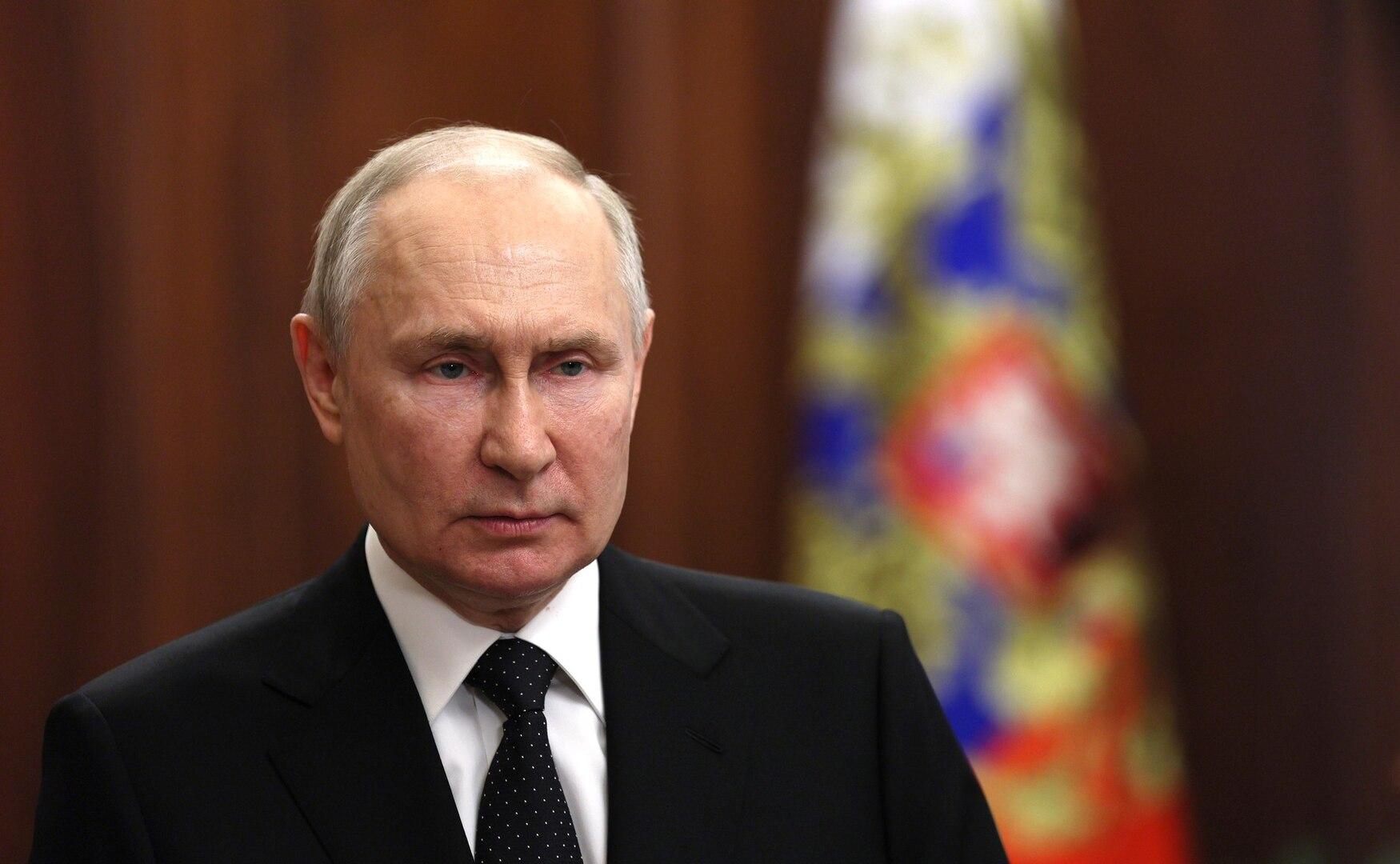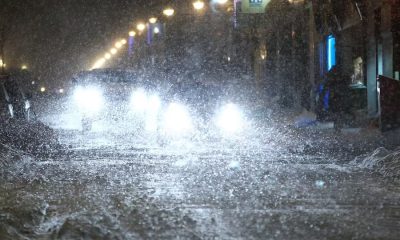Headline
Russia’s next election is likely to put Putin in power for longer than anyone since Peter the Great

FILE: Putin making an address to the Russian people regarding Yevgeny Prigozhin’s private military company Wagner Group rebellion on 24 June 2023. (Photo By Kremlin.ru/Wikimedia Commons, CC BY 4.0)
Presidential elections will be held in Russia in March. It is inevitable that the incumbent president, Vladimir Putin, will win.
Putin has been in power (whether as president or as prime minister) since 2000. If he wins again, and he serves his full six-year term, he will have been in power for 30 years, longer than any Russian or Soviet leader since Tsar Peter the Great (who died in 1721).
Viable opposition candidates in this election are conspicuous by their absence. A few token figures, largely loyal to Putin, have announced that they are also running.
Of these, only the leader of the Communist party, Nikolai Kharitonov, is likely to garner many votes. In the last presidential election in 2018, the Communist candidate came second to Putin, (12% of the vote compared to Putin’s 77%).
Opposition candidates?
Some potential candidates who wanted to stand in opposition to Putin – and in specific opposition to the war in Ukraine – have, on dubious bureaucratic grounds, been refused permission to do so. Notable in this regard is the peace activist Yekaterina Duntsova. But it is a brave candidate who might try and oppose the sitting president in this election.
In the past, leading opposition figures in Putin’s Russia who stood up to him and who questioned his authority have tended to be dealt with harshly.
The liberal Boris Nemtsov was killed, for instance, in 2015 outside the Kremlin (supposedly by agents linked to Putin’s FSB). And other leading Putin critics such as Alexei Navalny and Mikhail Khodorkovsky have been sent to jail in Siberia.
Navalny remains incarcerated, but Khodorkovsky is now in exile in London. Thus, it is probably in the best interests of Duntsova’s health that her name does not appear on any ballot papers.
Although Putin could no doubt engage in some electoral chicanery to ensure that he is re-elected with a large majority, he will, however, be seeking to be backed by a significant mandate. He wants the election to appear to be a free and fair ballot.
He needs the election to be seen as “clean” as a means of cementing his legacy as Russian state leader. He does not want history to remember him as a leader who could only remain in power as a dictator.
And it seems that he will be re-elected by a clear majority of the Russian people. As leader, Putin has regularly been recorded as enjoying popular support. He recently had an 80% approval rating.
The caveat is, of course, that the state-sponsored Russian media has always backed Putin and painted him in a very flattering light. Also, in recent years, and especially since the 2022 war in Ukraine began, any news outlets that were critical of either Putin or more widely of state policy have been severely clamped down on or even forced out of the country. Russia has a media that is now totally in Putin’s hands.
Putin also needs to win, and win handsomely, to ward off any challenges to his rule from within his supposed power base. Since coming to power, he has developed a significant web of patronage links involving people in the various “power ministries” and senior political figures, oligarchs and military leaders.
In essence, they all rely for their own leading – and wealth-creating – positions on the fact that Putin’s hand remains steady on the Russian state tiller.
But if the electorate appears to decide that Putin does not enjoy their popular support – and that he is therefore a weak leader – then a significant number of those people in positions of power – the “siloviki” (strongmen) – may feel that they have to act. They may want to unseat him in order to retain the state stability that serves their interests.
Putin’s future
What they will not want is anything akin to what happened after the Belorussian presidential elections of 2020. President Alexander Lukashenko was almost unseated by a wave of street protests in the wake of what appeared to be a “sham” election.
Indeed, Putin himself was given a severe shock in 2011 when the same thing happened in Russia. Thousands of protestors came out onto the streets of Moscow and St Petersburg after seemingly fraudulent elections. Putin was rattled. State stability was under threat.
He cannot allow the same thing to happen again. So, despite all the temptations, he needs to keep this forthcoming presidential election as seemingly “free” and fair as possible.
While Putin does appear now to enjoy a high degree of popularity in Russia (albeit largely media-engineered), this may not last. The war in Ukraine drags on and it will demand continuing losses of both Russian blood and treasure. Most specifically, the war will require the commitment of more and more Russian men.
Another wave of – deeply unpopular – mobilisation is inevitable.
The massive costs of the war will put pressure on social welfare spending. And taxes will rise, as will inflation. The sanctions’ regime imposed on Moscow by the west will serve to undermine much of the Russian economy. Times will become harder for ordinary Russians and Putin will inevitably be blamed.
He may win these presidential elections in March, but just how long he can remain in power, given the unavoidable demands of the coming months, may be uncertain.![]()
Rod Thornton, Associate Professor/Senior Lecturer in International Studies, Defense and Security., King’s College London
This article is republished from The Conversation under a Creative Commons license. Read the original article.



























